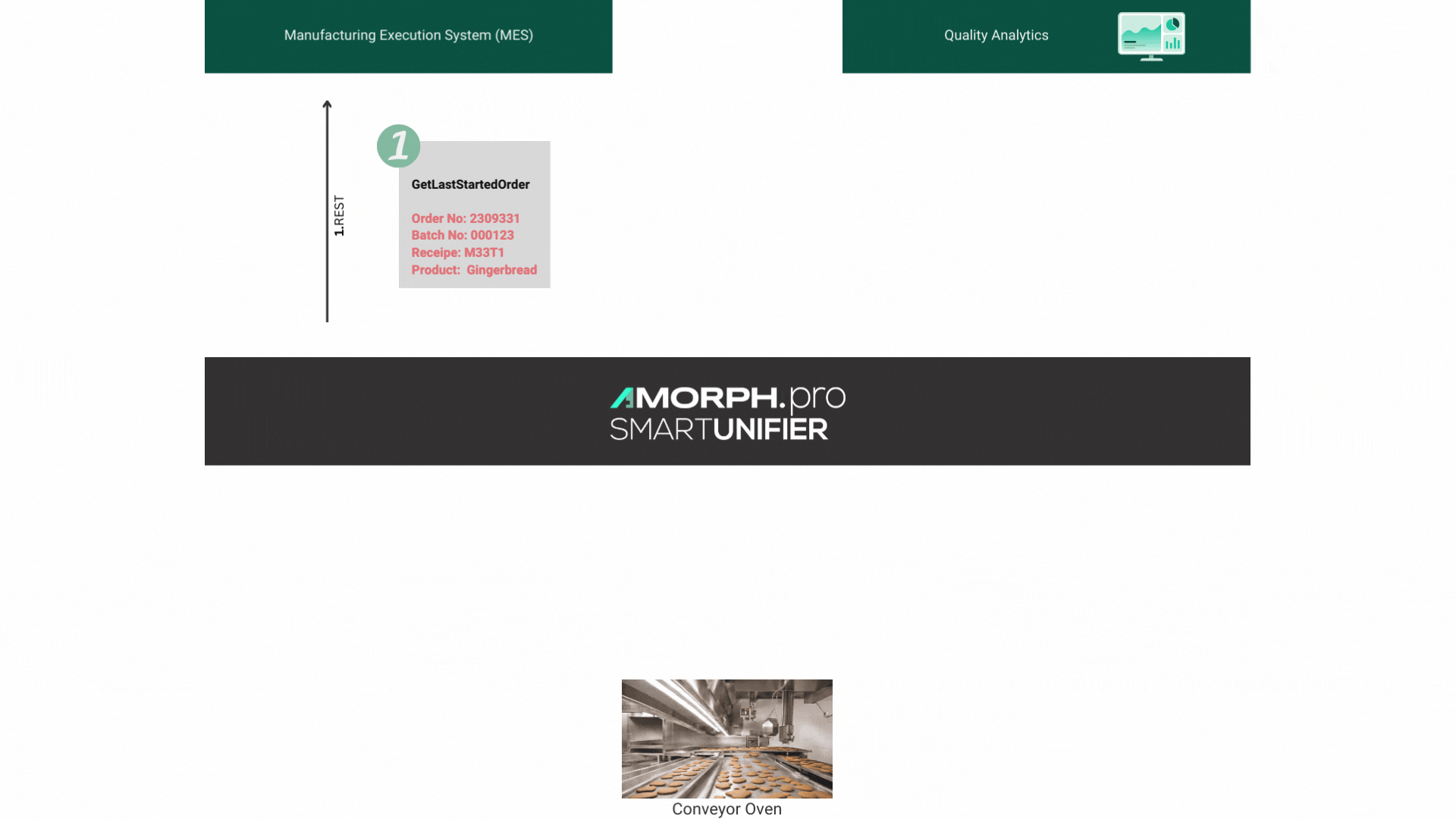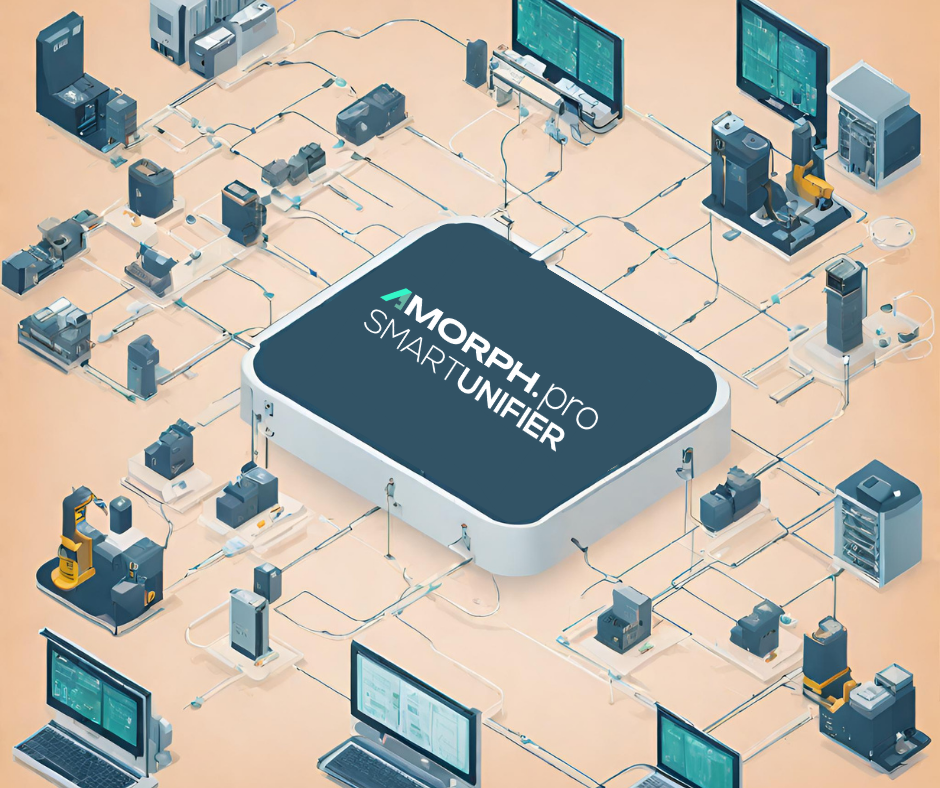The Importance of Data Contextualization in Manufacturing Industry

In the current global scenario, information has become a crucial asset for the success of any enterprise. It offers significant insights and enables fact-based decisions.
In the realm of manufacturing, understanding the additional contextualization increases the potential for business intelligence even more. By comprehending the backdrop of the information, manufacturers can strategize decisions that support business expansion and enhance overall productivity, allowing self-optimizing processes and KPI-secured decisions.
The Benefits of Data Contextualization in Manufacturing Industry
Data contextualization in the manufacturing industry in combination with seamless connectivity is vital for maximizing data utilization. It aids manufacturers in understanding their operations even deeper than stand-alone data would ever allow.
Contextualization describes the process and functionality to connect and combine correlated data in most cases across system boundaries. This helps identify not-so-obvious patterns and trends. Utilizing big data analytics, manufacturers can extract useful insights to remain competitive. Eventually, using contextualization can boost efficiency and profitability in manufacturing, marking it as an essential tool for industry success.
Applying Context to Unlock the Full Potential of Data
Imagine the following two situations:
1. Data Contextualiziaton for Product Quality Issues:
As a manufacturer dealing with high-variance products, meticulous tracking and tracing are paramount. Every serialized product, its consumables, manufacturing equipment, tools, and durables must be accounted for. To streamline these operations, a Manufacturing Execution System (MES) is already in place, orchestrating production orders and process plans.
In addition, an Enterprise Resource Planning (ERP) system manages batches of consumable goods, complemented by dedicated asset management for production devices, including maintenance and status information. Consider, too, the implementation of shift and skill management, providing insights into the capabilities of workers and operators.
Despite this well-coordinated system, challenges persist in the form of product quality issues, leading to yield challenges with multiple potential root causes. One possible cause could be the unstable workroom temperature of two tooling machines, while another might be the use of two released consumables from different suppliers with identical specifications in small batch sizes.
At this stage SMARTUNIFIER comes into play — a solution designed to seamlessly connect all south-bound elements (equipment, machines, sensors) and north-bound data sources (ERP, MES, SQL databases, CSV sheets, etc.). More than just establishing correlations, SMARTUNIFIER contextualizes data, revealing not only associations but also the causality behind quality issues. This innovative tool serves as the bridge to uncover and address the root causes of product quality challenges within your manufacturing ecosystem.
2. Data Contextualiziaton for Carbon Footprint:
As a manufacturer specializing in standardized yet diverse products, produced and delivered in batches, you face unique challenges in meeting customer demands. Your clients insist on a comprehensive carbon footprint analysis for each delivery lot, even when shipments are divided into partial deliveries. Complementing this, your commitment to ISO 50001 compliance aligns with customer expectations for a continuous reduction in carbon footprint over time.
In your well-equipped operational landscape, encompassing Manufacturing Execution Systems (MES), Enterprise Resource Planning (ERP), and various other sophisticated software solutions, a particularly complex challenge arises. This involves aggregating energy consumption data throughout the entire production process, incorporating the CO2 equivalents of scopes 1, 2, and 3 as defined by the Greenhouse Gas Protocol.
A powerful tool to achieve this is SMARTUNIFIER, the transformative solution that seamlessly connects and contextualizes data from all relevant sources. Through SMARTUNIFIER’s contextualization capabilities, you gain the ability to precisely correlate energy consumption data from production equipment with specific customer order information. This not only addresses your immediate challenge but positions your manufacturing process for enhanced efficiency and sustainable practices. SMARTUNIFIER is the missing link that empowers your company to navigate the complexities of carbon footprint management with precision and ease, setting the stage for a more sustainable and environmentally conscious future.

The Role of SMARTUNIFIER in Contextualizing Data in Manufacturing

In the dynamic landscape of manufacturing, the efficient contextualization of data is pivotal for driving innovation and enhancing operational excellence. SMARTUNIFIER emerges as a game-changing tool, offering a fully decentralized connectivity and DataOps (Data Operations) platform that seamlessly interconnects all devices and IT systems in the manufacturing ecosystem. This platform extends connectivity to equipment, peripheral devices, sensors/actors, MES, ERP, and cloud-based IT systems, presenting a holistic solution for data integration and security.
Conclusion
As technology advances and the manufacturing landscape evolves, SMARTUNIFIER stands as a beacon, empowering manufacturers to unlock the full potential of their data. With its robust features and industry-specific applications, SMARTUNIFIER not only addresses the current needs of the manufacturing sector but also paves the way for a future where data contextualization is seamless, efficient, and integral to success. Embracing SMARTUNIFIER is not just an investment; it’s a strategic move toward sustained growth and competitiveness in the years to come.
Contact us today to explore how SMARTUNIFIER can tailor-fit its capabilities to your unique needs, driving data contextualization in manufacturing. Let’s build a future where your data works for you, unlocking opportunities, driving innovation, and ensuring your place at the forefront of the manufacturing revolution.
